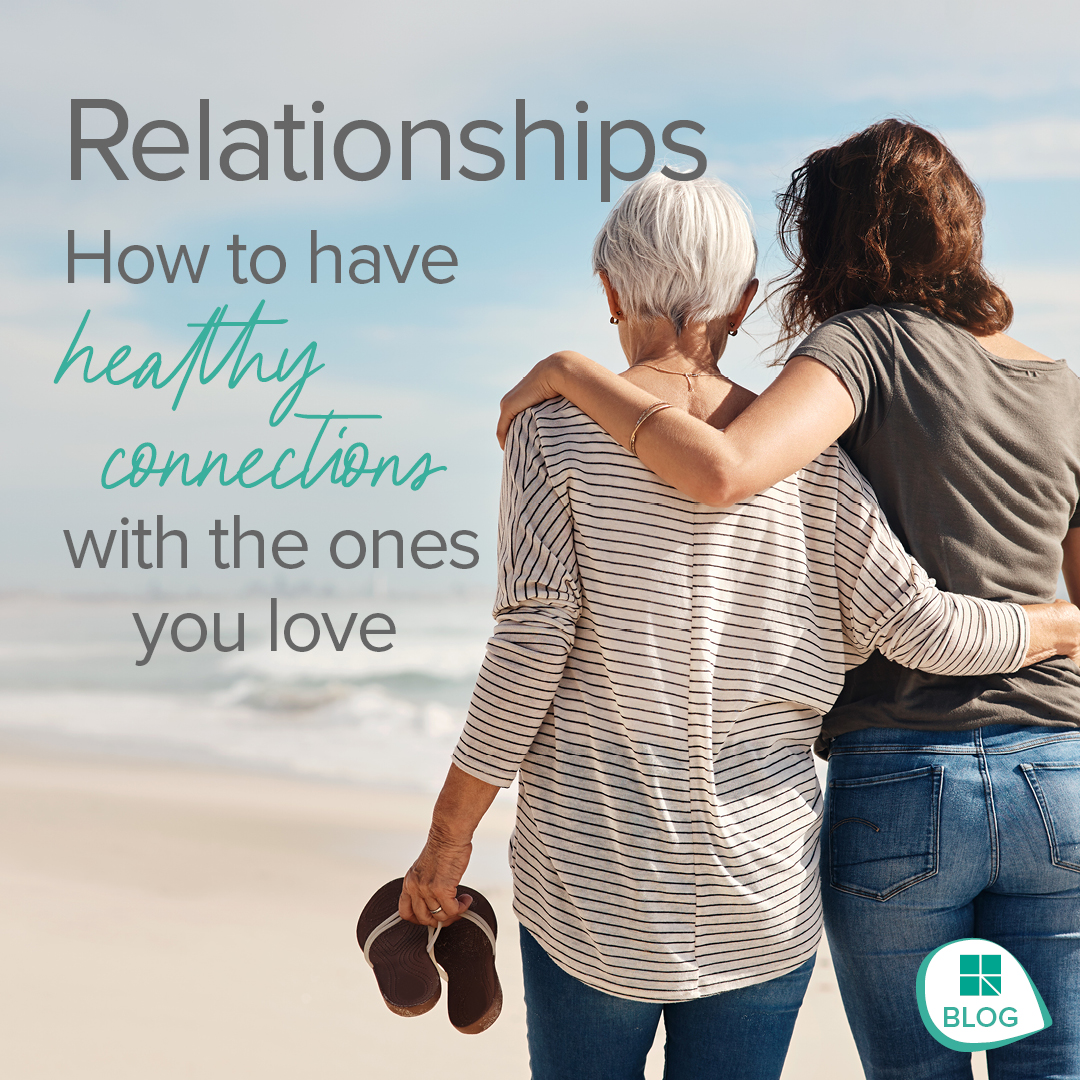
Relationships: how to have healthy connections with the ones you love
Relationships are one of the four pillars that support our mental health. Feeling connected to others and having people in our life who we trust and can count on is critical to a sense of belonging and wellbeing.
Interpersonal effectiveness: who are you to your loved ones?
Put simply, interpersonal effectiveness is how well you interact with your loved ones. This can refer to the role you play in their lives, and vice versa.
While it’s natural to ‘wear certain hats’ from time to time in our relationships, consistently playing a role you’re not comfortable with or that you find exhausting can become destructive over time.
Destructive patterns in relationships can include:
- Beliefs, such as ‘I must be loved and needed by everyone,’ or ‘People should always be busy, even if they’re not achieving anything’
- Behaviours, such as ‘People take me for granted because I never set limits with others,’ or ‘I upset other people by being negative, critical or controlling’
- Emotions, such as ‘I am not aware of having my own feelings,’ or ‘I am permanently angry, tired or jealous’
Breaking out of these patterns is possible with conscious effort and consistent practice, using techniques such as mindfulness and constructive feedback.
Constructive feedback: how to give and receive it
Constructive feedback is intended to encourage and support someone to improve. It is not about controlling or changing them, or about making them feel small or ashamed.
If you’re giving constructive feedback, start off with something positive to set an open, supportive mood. Then mention exactly what you are asking them to change, and remember you are making a request – it is up to the other person whether they will oblige.
Make sure to let them know how much you appreciate them listening to your request and reasoning, and how grateful you would be if they chose to make the change you’ve asked for.
If you’re receiving feedback, try to be open-minded. Hear the other person out and try your best not to be defensive. It is up to you whether you take someone’s request or opinion on board but showing your loved ones the respect of listening is critical to a healthy relationship.
‘Healthy fighting’ and effective communication
Everyone, even the best of friends or the closest of partners, has disagreements or misunderstandings sometimes. Part of nurturing a healthy relationship is having the space to speak about these disagreements in a calm, respectful way. Sometimes this is called ‘healthy fighting’.
Ground rules for healthy fighting include:
- >
- Respond – don’t react
- Be assertive
- Identify the problem
- Express your feelings
- Make a request
- Compromise
- Find a solution
- Let it go!
Finally, remember the only behaviour you can control is your own. If you have an issue with someone’s behaviour, unless you tell them about it it’s highly unlikely they will figure it out – people are not mind readers! Take the first step and approach your loved one with respect and kindness.
Reach out for support
Just like physical illnesses, the treatment and specialist care a person might need for one mental illness may not be suited to the next person.
As the largest private provider of mental health care in Australia, we are dedicated to making a real difference in the lives of those we treat, with whatever pathway they need.
We offer a range of services designed to support people experiencing mental health issues including anxiety, depression, and a wide range of other conditions.
We encourage you to reach out to our expert team who can assist you in finding the right avenue for your mental health care journey.